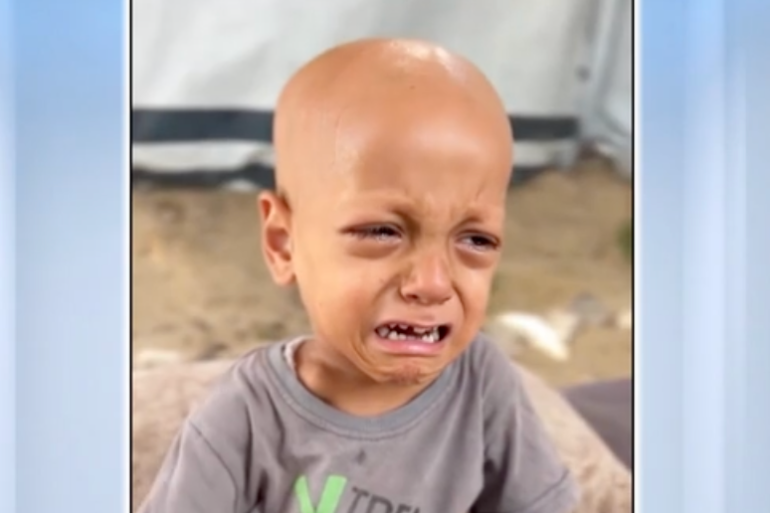THE fluorescent lights of Adana City Training and Research Hospital cast harsh shadows across Hamed Abu Zerka’s gaunt face as he stands beside his six-month-old daughter’s hospital bed.
The 34-year-old’s weathered hands tremble as he adjusts Habiba’s blanket.
Abdullah, his four-and-a-half-year-old son, died Tuesday morning in this same room, his small body finally succumbing to the malnutrition that had been slowly consuming him for months as Israel laid siege to Gaza.
The family became emblems of the Israel-imposed famine on Gaza’s 2.1 million people when a video of Abdullah went viral weeks ago, the clearly malnourished child screaming in hunger, asking for food, as his mother wept helplessly.
Their story captured international attention and prompted the medical evacuation that brought them to Turkiye, which seemed like salvation – but came too late for Abdullah.
Basma Abu Zerka, 30, sits in the corner holding a small bundle of her son’s clothes. She speaks little, crying silently.
“We lost our child. We’re living through tremendous pain,” Hamed says, his voice raw.
Hamed hollowly describes the pain of powerlessly watching his children waste away.
His voice cracks as he recalls the final weeks in Gaza, when finding a single tomato became an impossible dream.
“There isn’t even clean drinking water there. Bombs are falling; there’s hunger and death everywhere.”
“Abdullah and Habiba needed urgent treatment,” Hamed continues, his eyes fixed on his daughter.
“Every day, they became smaller, weaker.”
The evacuation to Turkiye came through a Foreign Ministry humanitarian programme, with Turkish officials working diplomatic channels to secure the family’s passage.
But the process took weeks – time that Abdullah’s failing body couldn’t afford.
“Turkish officials contacted us and were with us until we arrived here,” Hamed explains.
“We thank … everyone who contributed to helping us. But we arrived carrying children who were already ghosts of themselves.”
The flight to Adana was the first time either child had left Gaza. Abdullah, barely conscious from malnutrition, likely had no awareness of the journey. Habiba, younger and slightly more resilient, cried weakly during takeoff.
At the Adana hospital, medical staff recognised the severity of the children’s conditions.
Abdullah arrived with severe complications stemming from prolonged malnutrition: organ dysfunction, immune system collapse, and developmental delays that spoke to months of inadequate nutrition.
Dr Mehmet Yilmaz, the hospital’s chief of paediatric intensive care, has treated numerous children evacuated from conflict zones, but the Abu Zerka siblings’ conditions shocked even experienced medical staff.
“These children often arrive with damage that has been building for months,” he explains.
For 10 days, medical teams worked around the clock to save Abdullah, administering specialised nutrition therapy, treating severe dehydration, and monitoring his vital organs as they struggled to function.
But the boy’s body, depleted by months of hunger, couldn’t respond to treatment.
“He was so small,” recalls Nurse Ayse Demir, who cared for Abdullah during his final days. “Even with all our equipment, all our medicine, we couldn’t undo what months of starvation had done to his little body.”
The United Nations estimates that over 90 percent of Gaza’s population faces severe food insecurity, with children particularly vulnerable to malnutrition-related complications.







